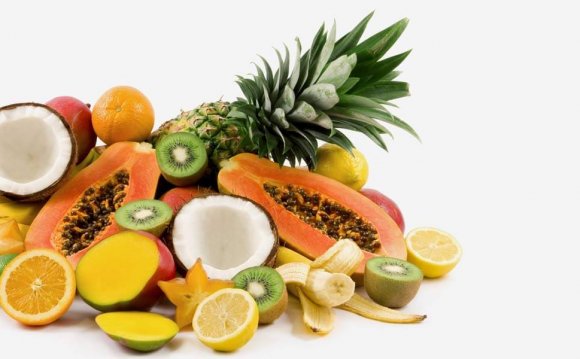
The depth of this medicine goes beyond diagnostic, treatment, and prognostic. Ayurveda includes all aspects of human nature: physical, emotional, and spiritual well-being. Ayurvedic medicine is not concerned with treating syndromes and illnesses alone, but guides people into healthy lifestyles.
Nutrition is one of the most important aspects of balanced health for Ayurveda. It categorizes people into three main types, or Doshas: Vata (air), Pitta (fire), and Kapha (earth), offering very personalized guidelines for each individual.
Vata
Vata people are like the wind. Movement and change is their primal nature—they’re always on the go. Vatas are energetic and highly creative, curious about the world, and their lives are filled with emotion.
Vatas are usually thin, light-framed, and very agile. Their energy levels vary a lot, from moments of excitement and enthusiasm to tiredness and fatigue. Vatas usually feel colder than the other doshas, with cold hands and feet and dry skin and hair. They have light sleep and need to rest to recover energy. When vata is out of balance it can be manifested in weight loss, weakness, restlessness, and digestive problems.
Vatas love new experiences, excitement, and stimulation. Vatas are usually very flexible and highly adaptable to new situations. They love to meet people and engage in deep conversations.
Pitta
Pitta people express the fire characteristics. They are usually medium sized, and sometimes have blond or red hair. Pittas are dynamic, temperamental, and have a strong sex drive. They’re perfectionists and natural born leaders. Their digestive system is great and they’re famous for having very strong appetites.
They love intellectual challenges. They are very outspoken, and they have no problems having high profile jobs or managing other people.
When Pitta is out of balance, it can manifest as being irritated easily, intolerance to heat and summer time, and preferring cool climates and foods. Pittas may get rashes easily, experience burning sensations, heartburn or other symptoms related to excessive heat.
Kapha
Kapha people are the earthy type. They are calm, grounded, and crave stability.
Kaphas have a tendency to gain weight and are usually strongly built. They have strong hair and nails, and big shiny eyes. They are slow moving, and love a steady life. They’re not crazy for traveling or big adventures, as they usually have a hard time out of their comfort zones and adapting to new environments.
Kaphas tend to live sedentary lives based on routine. They’re happy with a few close friends and feel extremely uncomfortable to be the center of attention, which rarely happens. They’re very loyal, loving, and caring.
Kaphas have a tendency to attachment; they can get stuck carrying on empty relationships and negative emotions, like resentments, that no longer serve them. They can suffer from constipation, tumors, fluid retention, allergies, depression, and being overweight.
A Note About the Doshas
The doshas are never displayed in their pure form; people are often a mix of two, or even three doshas in different degrees, so we can have Vata-Pitta, Pitta-Kapha, et cetera.
The Vata Diet
Vatas benefit from heavy, rich, oily foods in order to harmonize their natural sense of lightness, movement, and instability. The best tastes to pacify Vata are sweet, salty, and sour. Foods that are pungent, bitter, or astringent should be avoided.
Cooked vegetables are best. Raw vegetables should be minimized. Asparagus, beets, squash, and carrots are highly recommended. Other vegetables may be taken in moderation if cooked in extra virgin olive oil, including peas, broccoli, cauliflower, zucchini, and sweet potatoes. Sweet, heavy fruits such as bananas, avocados, mangoes, apricots, plums, berries, coconut, figs, grapefruit, orange, lemon, melons, papaya, peaches, pineapples, rhubarb, kiwi, dates, nectarines and dried fruits are acceptable.
Rice is an excellent cereal for Vatas.
Nuts are always welcome, as well as warming spices such as cardamom, cumin, ginger, cinnamon, salt, cloves, mustard seed, basil, cilantro, fennel, oregano, sage, tarragon, thyme, and black pepper.
The Pitta Diet
Pittas benefit from cooling foods, since they have a natural tendency to overheating. Foods with sweet, bitter, and astringent tastes are best. Avoiding foods that are pungent, salty, and sour will help alleviate Pitta imbalances.
Sweeter fruits, such as grapes, melons, cherries, coconuts, avocados, mangoes, pomegranates, fully ripe pineapples, oranges, and plums are recommended. Reduce sour fruits, such as grapefruits, apricots, and berries.
RELATED VIDEO












